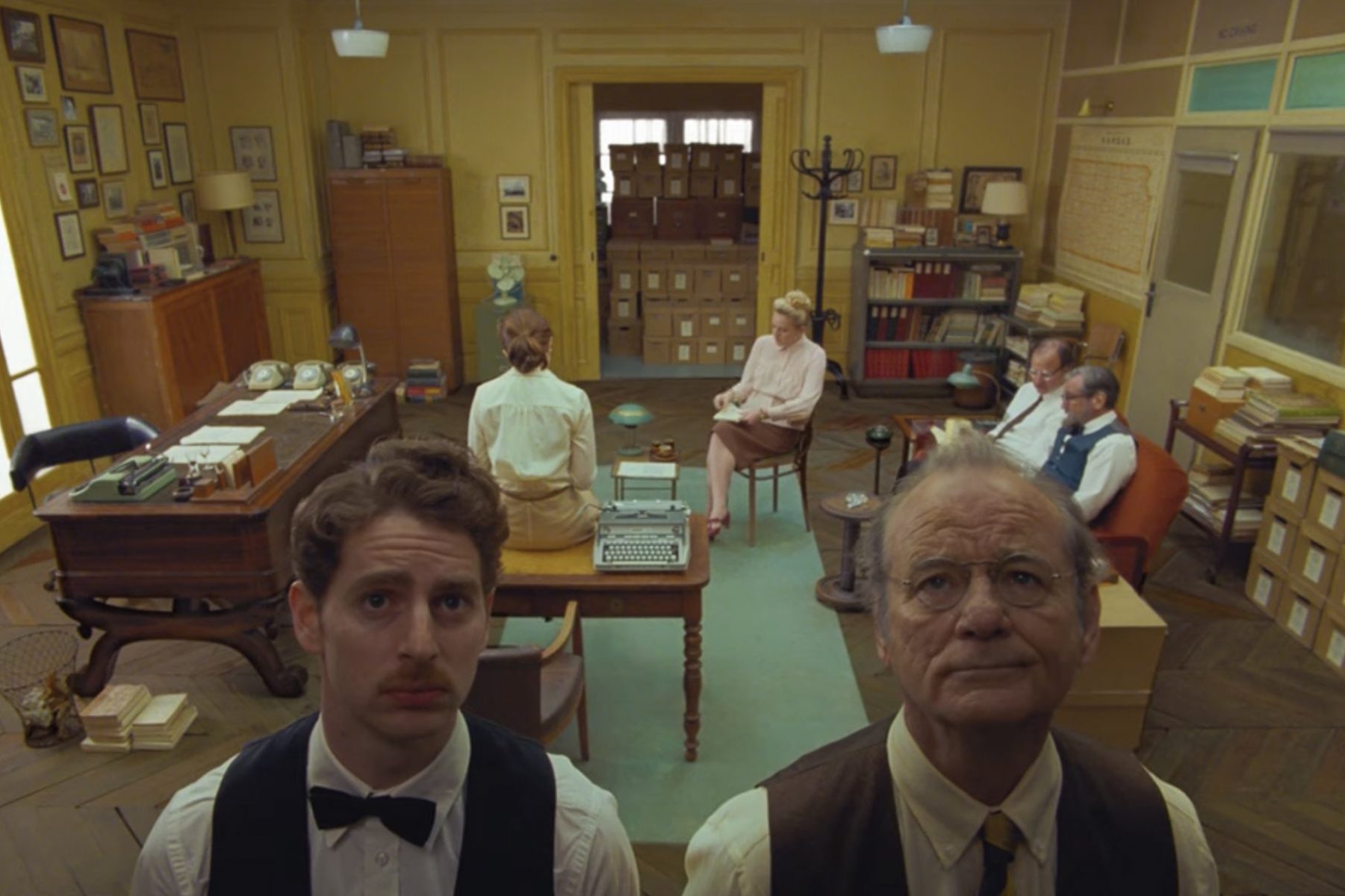Many directors are known for certain trademarks they incorporate into their work. Guillermo del Toro has his monstrous yet sometimes beautiful creatures (“Pan’s Labyrinth,” “The Shape of Water,” etc.), and Quentin Tarantino has his over-the-top violence whenever he’s not showing off his talent for witty dialogue (“Pulp Fiction,” “Reservoir Dogs,” etc.). Then there is the always stylish filmmaker Wes Anderson. His latest movie “The French Dispatch” is one of the many upcoming projects that had to be put on hold due to the COVID-19 pandemic, so the only thing fans have to base the premise on is what they have gathered from the trailer — which, by the way, showcases some of the best characteristics of a standard Anderson movie.
Like most of the director’s other features, “The French Dispatch” appears to have a whimsical tone with some acts of abrupt but small-scale violence. Anderson has a flair for showing audiences different worlds that are surreal yet somehow familiar, with even his most mundane characters having some quirk about them. It is for this reason that critics apply the auteur theory of filmmakers to Anderson, assessing him as a sort of “film author.”
Wes Anderson tends to focus on particular themes and stories in his movies. Though he directs mostly fast-paced dark comedies, these works possess melancholic elements that generally involve dealing with grief, dysfunctional families, unlikely friendships and a certain loss of innocence. Movies of his that center around these themes, such as “The Royal Tenenbaums,” “The Grand Budapest Hotel” and “Moonrise Kingdom,” are also largely character-driven, as they pay close attention to the growth and development of the characters along the way. Almost always originals, the characters are made from scratch, since Anderson creates the stories and writes the screenplays of every movie he directs. There may be inspiration from books and other films, but the premises are his own, never remakes. The sole exception to this is the only adaptation in his filmography, 2009’s “Fantastic Mr. Fox,” which was based on the 1970 Roald Dahl children’s book of the same name.
Anderson’s stories often have a simple narrative on the surface, but underneath, what this artist creates is plenty of narrative exposition and the portrayal of deeper human emotion. It’s easy to believe just from the trailer to “The French Dispatch” that it will have the same great storybook quality he has become known for. Perhaps the only difference is that audience members will be given three stories for the price of one because the plot will be centered around a collection of those stories being published in the final issue of the titular American/French magazine. These stories contain such exciting elements as imprisonment, teenage rebellion, kidnapping and so much more.
The famous Wes Anderson color palette is one way the director has been able to incorporate his own personal style into his films. “The French Dispatch” will feature some of his trademark displays of vibrant colors to help beautifully establish the time period, as well as to make the scenes pop out. It is a technique the director has used in past films, and it is used to other effects as well, such as to make the characters the main focus of a scene by highlighting their natural hues. What the trailer of “The French Dispatch” suggests, however, is that this particular signature might not be making as much of an appearance this time around; the majority of the trailer was in black and white. Judging by the context clues the trailer offers, it seems that the black and white is used when depicting the three stories being told, while scenes taking place outside of those stories will be saturated in the bright colors Anderson fans are more familiar with.
What will likely be making an appearance is Anderson’s other visual style, the way he employs symmetry to suggest points of interest. For the same reason he uses colors that stand out, Anderson uses the central perspective to draw the viewer’s eye to the main subject of a scene. Not only does this technique place emphasis on the framing of the shots, but it is also very aesthetically pleasing — something that can be confidently said about this new movie as a whole. Though we still have no exact idea what the plot is, at least we know that from an artistic standpoint, the movie looks beautiful.
Starring in this upcoming project are frequent Anderson collaborators Bill Murray (“The Life Aquatic with Steve Zissou”), Jason Schwartzman (“Rushmore”) and Owen Wilson (“Bottle Rocket”), actors who the filmmaker always seems to enjoy casting in his movies even if just for a minute of screen time. Among them will be “Little Women” actors Timothée Chalamet and Saoirse Ronan, both of whom made good names for themselves in 2017’s “Lady Bird.” Ronan herself was even cast in Anderson’s other well-received film, 2014’s “The Grand Budapest Hotel.” The aforementioned veteran actors and the up-and-comers alike will make great additions to this quirky film by playing child-like adults, adult-like children and generally off-the-wall characters.
Unfortunately, “The French Dispatch” has been delayed to this October. No other speculation or word can be said about it at this time, except that if you love Wes Anderson, be sure to mark those calendars.
















